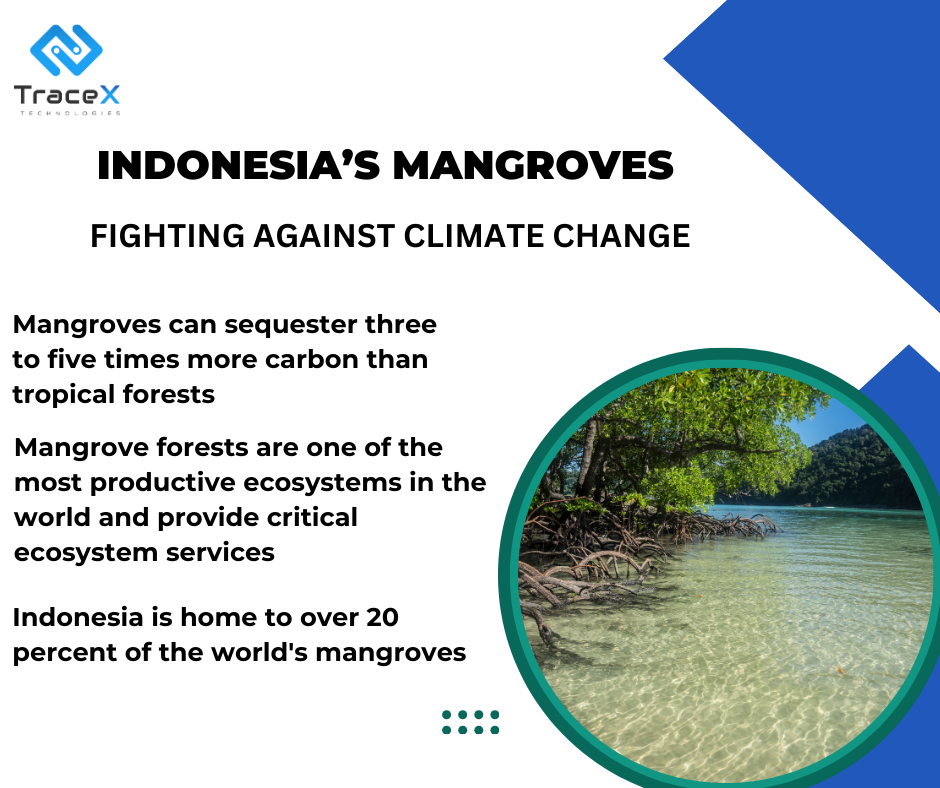Contact: +91 99725 24322 |
Menu
Menu
Quick summary: Explore the potential and challenges of carbon offset projects in Indonesia, uncovering the country's role in mitigating greenhouse gas emissions through nature-based solutions. Discover how initiatives like reforestation and sustainable land management contribute to climate resilience and biodiversity conservation while addressing global climate goals.

Carbon Offset projects in Indonesia are at the forefront, recognizing the critical need to mitigate greenhouse gas emissions and combat climate change. With its vast forests, rich biodiversity, and significant carbon storage capacity, Indonesia plays a pivotal role in global efforts to reduce carbon footprints.
According to the Centre for Nature-based Climate Solutions (CNCS) at the National University of Singapore, 58 per cent of forests in the Asia-Pacific are under threat and could be protected as economically viable forest carbon projects.
Carbon offset programmes are activities that try to reduce or compensate for greenhouse gas emissions to mitigate their environmental impact. These projects may involve reforestation efforts, renewable energy investments, landfill methane capture, or industrial energy efficiency improvements. The goal is to balance emissions by avoiding or removing carbon dioxide from the atmosphere.
Carbon offset projects help to mitigate climate change by providing a way to pay for inevitable emissions while transitioning to a low-carbon economy. They enable individuals, businesses, and governments to accept responsibility for their carbon footprints and contribute to global emissions reduction efforts. Investing in these projects can help to mitigate the negative effects of climate change, such as rising temperatures, extreme weather events, and biodiversity loss. Carbon offset initiatives can also encourage sustainable growth, create green jobs, and support clean technology innovation, all of which contribute to a more resilient and environmentally sustainable future.
Indonesia is an important player in carbon offset initiatives because of its enormous tropical forests, which serve as critical carbon sinks. The country’s significant forest cover allows for operations such as reforestation, afforestation, and averted deforestation, all of which help to sequester carbon. Indonesia’s participation in carbon offset programmes is critical to global climate change mitigation efforts, since the preservation and restoration of its forests help absorb and store carbon dioxide emissions, lowering atmospheric greenhouse gas levels.
Indonesia implements a variety of carbon offset projects, such as forest conservation and restoration initiatives, sustainable land management methods, and renewable energy projects. Forest conservation programmes aim to conserve existing forests from deforestation and degradation, whereas reforestation and afforestation activities entail planting trees to increase forest cover. Sustainable land management programmes seek to increase carbon storage in agricultural lands through strategies such as agroforestry and soil carbon sequestration. Furthermore, renewable energy projects such as solar and wind farms are being planned to lessen reliance on fossil fuels and emissions. These various carbon offset initiatives contribute to Indonesia’s efforts to address climate change and promote sustainable development.
Nature-based solutions offer promising avenues for carbon offsets, leveraging natural processes and ecosystems to mitigate greenhouse gas emissions. These solutions include activities such as afforestation, reforestation, forest conservation, wetland restoration, and sustainable agriculture practices. By enhancing carbon sequestration and storage, these initiatives help offset carbon emissions while providing additional co-benefits such as biodiversity conservation, ecosystem resilience, and sustainable livelihoods for local communities. Nature-based carbon offsets contribute to climate change mitigation efforts by harnessing the inherent capacity of ecosystems to absorb and store carbon dioxide, thereby offering scalable and cost-effective strategies to combat climate change. Additionally, these solutions align with global sustainability goals and can play a crucial role in achieving carbon neutrality targets for businesses and nations alike.
Discover the transformative potential of nature-based solutions (NBS) for carbon offset projects
Learn how initiatives like reforestation and sustainable land management can drive climate resilience and biodiversity conservation while mitigating greenhouse gas emissions.
As companies increasingly embrace nature-based solutions to address climate, economic, and ecological challenges, the surge in carbon markets has brought about certain issues, notably a lack of standardization and clarity on what constitutes a ‘good’ offset. New market participants are seeking guidance on evaluating opportunities before committing. The Integrity Council for the Voluntary Carbon Market recognized as the “standard of standards” for the VCM, recently introduced its Core Carbon Principles and Assessment Framework. This framework sets a standard for “high integrity” carbon credits, ensuring credibility and trustworthiness. High-quality credits are defined as genuine reductions or removals of CO2e, third-party verified, additional, quantifiable, durable, leakage-free, and listed on reputable carbon registries.
The Indonesian government and several organisations have launched projects to reduce carbon emissions and promote sustainability. The government has pledged to reduce emissions under the National Action Plan on Greenhouse Gas Emissions Reduction. Partnerships with international organisations such as the World Bank and UNDP also help to support efforts like the Indonesia Climate Change Trust Fund, which funds climate change projects. Non-governmental organisations (NGOs) such as the Indonesian Biodiversity Foundation (KEHATI) and the Indonesian Climate Change Trust Fund (ICCTF) play critical roles in implementing conservation and emission reduction projects, as well as leveraging partnerships and funding to support sustainable development and mitigate climate change impacts in Indonesia.

However, the environmental advantages can vary based on the project’s type and scale, as well as the efficacy of implementation and monitoring systems.
The efficiency of carbon offset programmes in decreasing greenhouse gas emissions is determined by a variety of factors, including project design, implementation tactics, and monitoring mechanisms. Projects aimed at reducing deforestation, increasing renewable energy, and improving energy efficiency have shown considerable emissions reductions. However, difficulties such as leakage, additionality, and permanency might have an impact on the overall efficacy of these programmes. Furthermore, establishing transparency, accountability, and compliance with internationally recognised standards such as the Verified Carbon Standard (VCS) or the Gold Standard is critical for correctly calculating and confirming emission reductions. Continuous evaluation and adaptive management are critical for increasing the effectiveness of carbon offset projects in meeting emissions reduction targets.
Carbon offset programmes have important social and economic effects, both positive and negative. On the plus side, these projects can generate jobs, particularly in rural regions, through activities like reforestation, sustainable agriculture, and renewable energy development. They can also improve local infrastructure and provide access to critical services. However, there may be negative consequences, such as land ownership disputes, displacement of indigenous groups, and the loss of traditional livelihoods. Furthermore, economic advantages may not always be evenly dispersed, creating inequities among communities.
Community involvement is critical to the success and sustainability of carbon offset schemes. Involving local populations in project design, execution, and decision-making processes can assist ensure that initiatives meet their needs and goals. Communities can benefit from revenue-sharing systems, capacity building, and skill development programmes linked to these initiatives. Furthermore, supporting co-management agreements and fostering partnerships among communities, governments, and other stakeholders can improve social cohesion and empower communities to actively participate in sustainable development projects.
Carbon offset operations in Indonesia confront a number of obstacles, including land tenure issues, deforestation pressures, and weak regulatory enforcement.
Addressing these challenges would necessitate coordinated efforts from governments, civic society, and the business sector to strengthen governance, improve technical capabilities, and expedite regulatory processes.
Digital MRV (Monitoring, Reporting, and Verification) solutions from TraceX address the challenges in carbon offset projects by providing a comprehensive platform for accurate data collection, real-time monitoring, and transparent verification. These solutions streamline the entire process, from data collection at the project level to reporting to regulatory bodies and stakeholders. By leveraging digital MRV solutions, companies can overcome challenges such as manual data entry errors, incomplete monitoring, and lack of transparency. Instead, they can ensure data accuracy, enhance project credibility, and demonstrate their commitment to environmental stewardship effectively.
Carbon offset projects have significant development and extension potential, owing to increased awareness of climate change, business sustainability responsibilities, and international climate accords. As governments work to reach their emission reduction targets, there is an increasing demand for carbon offset options to supplement mitigation efforts. Furthermore, advances in technology and methodology, as well as the advent of new market mechanisms, provide prospects for expanding carbon offset initiatives across sectors and regions.
Despite the opportunities, there are significant concerns for the future of carbon offset programmes. These include guaranteeing environmental integrity and additionality, addressing leakage and permanency, and improving openness and accountability in project implementation. Furthermore, gaining long-term funding and investment, negotiating complicated regulatory frameworks, and resolving social and justice concerns all provide hurdles to project scalability and sustainability. Overcoming these challenges will necessitate coordinated efforts by governments, businesses, civil society, and local communities to create an enabling environment for the continued growth and expansion of carbon offset projects while ensuring their effectiveness and integrity in mitigating climate change.
In conclusion, carbon offset projects in Indonesia represent a critical pathway towards achieving climate resilience and sustainability. With its vast natural resources and biodiversity-rich landscapes, Indonesia holds immense potential for implementing nature-based solutions to mitigate greenhouse gas emissions. By investing in projects such as reforestation, forest conservation, and sustainable land management, stakeholders can not only offset carbon emissions but also foster biodiversity conservation, enhance ecosystem services, and support local communities.
